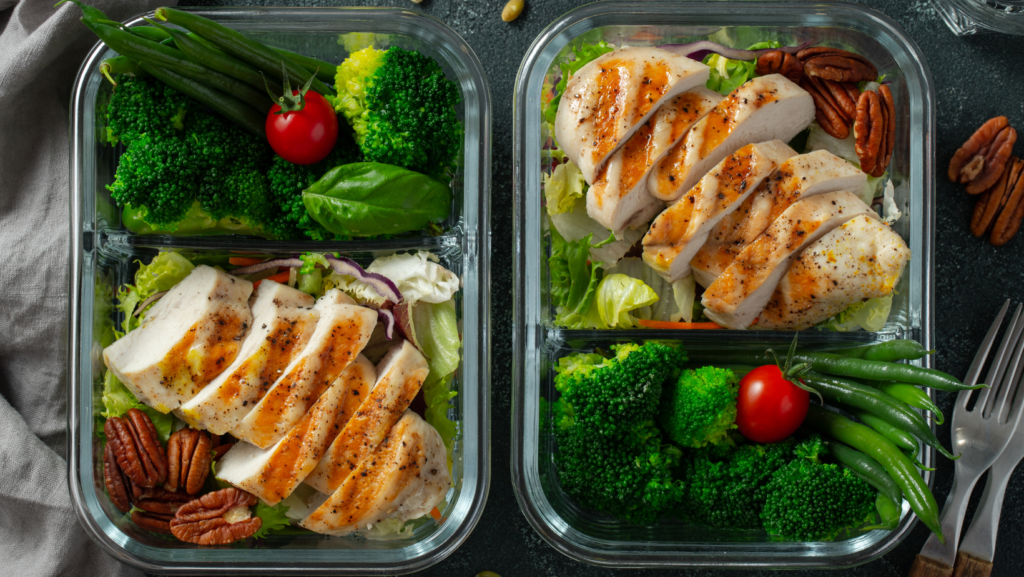Experts have always told us that weight loss is a calorie counting game. They’ve shared that as long as we consume fewer calories than we burn, then our weight will surely be on a downward trend. But is figuring out how many calories we eat really that simple?
Many of us underestimate our daily calorie intake by 25%-40%, with individuals struggling with excess weight being more prone to calorie blunders than people who weigh less. So what are the reasons why you might be underestimating your calorie intake?
1. Imperfect portion sizes
It is laborious and time-consuming to weigh and measure your drinks and foods every single time. So you will more often just estimate portion sizes instead of actually weighing and measuring what you need.
A tablespoon of peanut butter is about 100 calories, but by serving yourself a heaping tablespoon or two, you could end up with 50 calories or more. This means you will take in more calories without noticing, as you won’t be perfect with your estimates. Besides, trying to be scrupulous with food portions may hinder your relationship with food and cause chaotic eating.
2. Food amnesia
It is quite easy to forget to track your meals when you’re busy or distracted. An engaged mind will not keep track of the snacks and drinks you take when watching TV, driving or attending a meeting. When focused on a crucial meeting, you will forget about the calories in the soft drinks, juices, coffees with whole milk or a handful of almonds you ate during the sessions. Likewise, when drinking alcohol you will most likely forget what you eat while drinking.
All those little bites and sips can add up to 300 calories each day, so it’s essential that they’re tracked.
3. Tracking errors
Tracking what you’re eating using an online diary or a tracking app such as MyFitnessPal can help you to think about the food you eat and be more conscious of your decisions. However, if you make an error regarding the portion size or the type of food or drink you actually consumed, your counting can be off and you may underestimate your calorie intake.
A recipe function and a barcode scanner may enable you to count calories more accurately with the apps. Likewise, drafting in more of your favorite combos in the diary may make calorie counting faster and effortless.
4. False label figures
Most people consider the information provided on food container labels accurate and reliable. So when a bag of chips has a label indicating that it contains 200 calories per serving, you take your calorie intake as exactly that. This is however not true.
In fact, according to the FDA labeling laws, there is a 20% margin of error allowed for calories, total fat, saturated fat, sugars, sodium, and cholesterol. The bag of chips you’re eating may therefore actually contain 240 calories and still be compliant with the law. But by following the label, you will be underestimating your calorie intake.
5. Ignoring the BLTs
All the bites, licks, and tastes you make when preparing a meal, packing a lunch box or disposing leftovers from a previous dinner add up to your total calorie intake. For instance, if every BLT amounts to 25 calories and you make four tastes per day, then you could be adding an extra 36,500 calories per year, equating to more than 22 lbs. The little nibbles add a lot of calories, even if you don’t notice it.
6. Disparities when eating out
When you go to eat at your favorite restaurant, you are more likely to trust them to be accurate with the calorie figures posted on the menu. In most cases, particularly at sit down restaurants, the figures are inaccurate estimates riddled with excess calories. If you eat at least one meal outside of your home each day, you are likely to eat in excess of 100 calories more than you think you are consuming.
The alternative for a more accurate calorie count is to visit a fast-food chain which has everything standardized, pre-made, and heat-and-serve with no room for recipe adjustments or human error. However, such foods are not the best for the body and should be avoided.
7. Disregarding sporadic splurges
Making all the effort to plan and measure your calories during the week is great. However, that meticulous meal preparation and thorough tracking of calories is of little value if you drop all that during the weekends and go on unchecked eating and drinking.
Using your time out over the weekend to eat and celebrate with adult beverages will add plenty of calories without you noticing. In fact, the weekday strictness will give you a false sense of your actual calorie intake throughout the week, easily making you to ignore the amount you add during the weekend splurges.
Although calorie counting is an effective tool for a steady and healthy weight loss, it works best when part of a holistic and multifaceted strategy.
In that strategy for weight loss, calorie counting should help you discover your dietary habits and preferences, enabling you to become a goal-oriented, confident, and intuitive eater. The strategy should also enable you to eat the right portions of carbs, proteins and fats, balance the size and frequency of your meals, consume sufficient vegetables and fruits, and have whole, unprocessed and nutrient-rich foods as the core of your diet.
Furthermore, a good weight management strategy should enable you to conduct daily, weekly and monthly nutritional analysis to identify any gaps and discover ways to eat smarter. And since we tend to underestimate our calorie intake because of various reasons, balancing your plate with whole foods is a perfect way to naturally keep your calorie intake down.

















Leave a comment
This site is protected by hCaptcha and the hCaptcha Privacy Policy and Terms of Service apply.